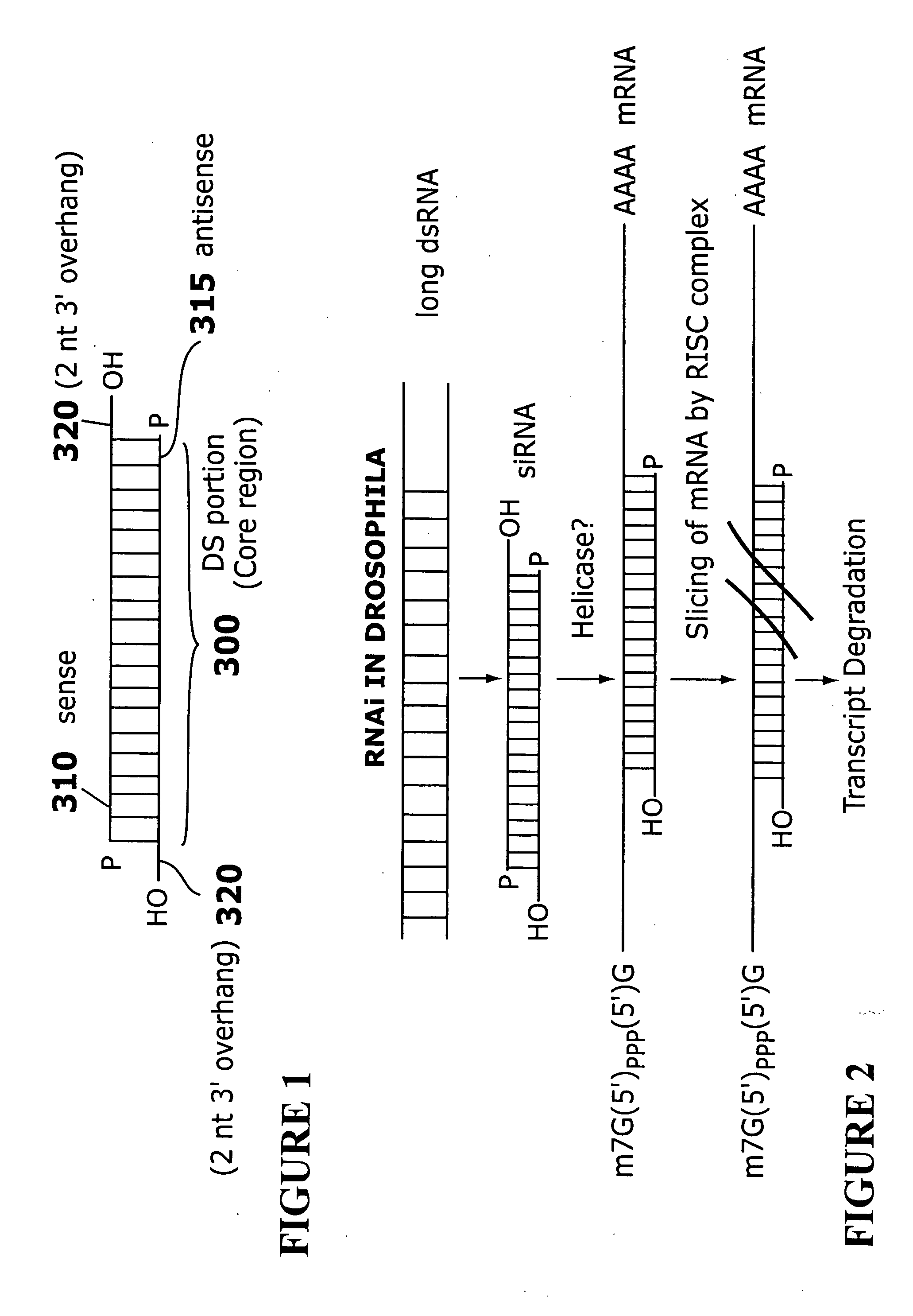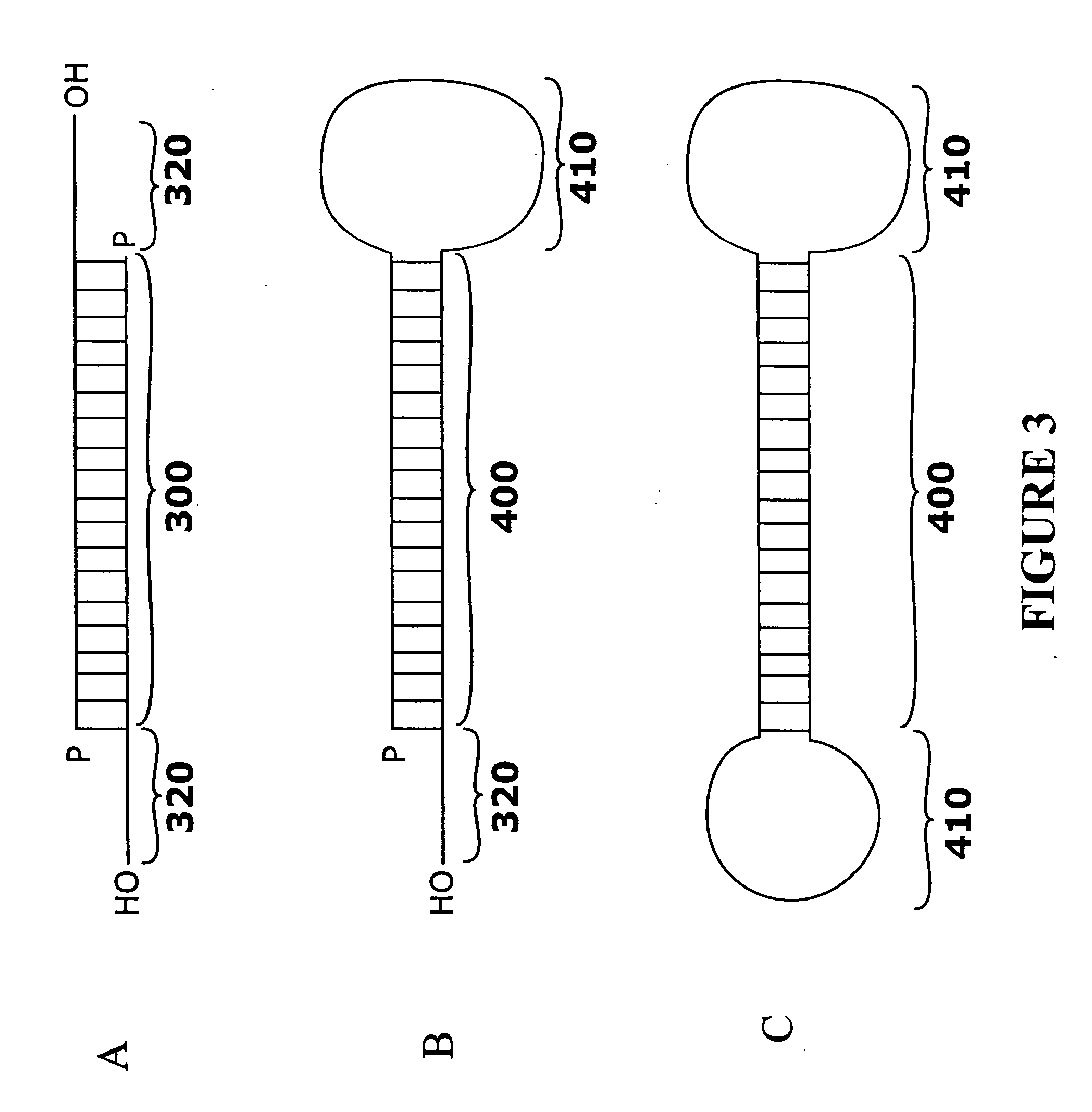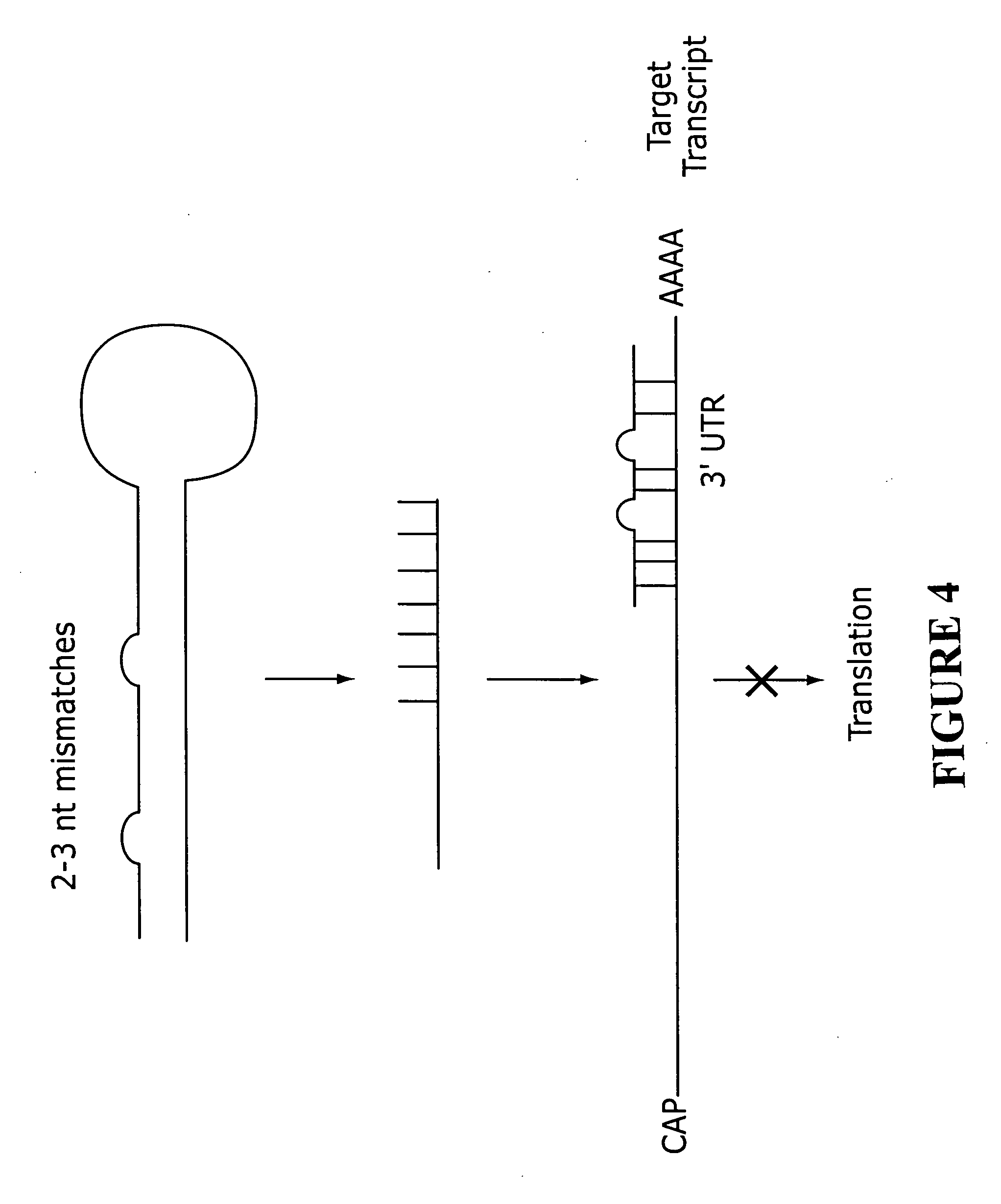RNAi-based therapeutics for allergic rhinitis and asthma
a technology applied in the field of rnai-based therapeutics for allergic rhinitis and asthma, can solve the problems of ineffective allergen immunotherapy for about half of treated patients, the impact of personal lives, and the direct and indirect costs of medical system and economy, and achieve the effect of enhancing the efficacy of rnai agents and effectively inhibiting gene expression in the respiratory system of subjects
- Summary
- Abstract
- Description
- Claims
- Application Information
AI Technical Summary
Benefits of technology
Problems solved by technology
Method used
Image
Examples
example 1
Design of siRNAs
[0264] The sequences listed in Tables 1-26 were selected as targets and as sense strands. For each sequence, a sequence perfectly complementary to the listed sequence was chosen as the corresponding antisense strand. A two nt 3′ overhang consisting of dTdT was added to each strand. For example, to design an siRNA based on the cDNA sequence FCεRα-268 (TTGGTCATTGTGAGTGCCA=SEQ ID NO: 316), the sequence 5′-UUGGUCAUUGUGAGUGCCA-3′ (SEQ ID NO: 1) is selected as the core region of the sense strand, and a complementary sequence, 5′-UGGCACUCACAAUGACCAA-3′ (SEQ ID NO: 317), is selected as the core region of the antisense strand. A two nt 3′ overhang consisting of dTdT is added to each strand, resulting in the sequences 5′-UUGGUCAUUGUGAGUGCCAdTdT-3′ (SEQ ID NO: 318) (sense strand) and 5′-UGGCACUCACAAUGACCAAdTdT-3′ (SEQ ID NO: 319) (antisense strand).
[0265] Hybridization of the sense and antisense strands results in an siRNA having a 19 base pair core duplex region, with each s...
example 2
Effect of Inventive siRNAs on Antigen-Induced Mast Cell Responses
[0266] This example describes an experiment to determine the effect of administration of inventive siRNA compositions on release of various mediators of inflammation by basophils and mast cells in response to antigen.
[0267] Reagents. Unless otherwise stated, reagents are obtained from the sources described in Moriya, K., et al., Proc. Natl. Acad. Sci. USA, 94: 12539-12544, 1997.
[0268] Cells, cell culture, and cell preparation. RBL-2H3 is a basophilic leukemia cell line possessing high affinity IgE receptors. These cells can be activated to secrete histamine and other mediators by aggregation of these receptors or with calcium ionophores Barsumian EL, et al., Eur. J. Immunol. 11: 317-323, 1981. They have been used extensively to study FcERI and the biochemical pathways for secretion in mast cells. RBL-2H3 cells (line CRL-2256) are obtained from the American Type Culture Collection (Manassas, Va., http: / / www.atcc.org)...
example 3
Effect of Inventive siRNAs in a Murine Model
[0274] This example describes evaluation of the effect of administration of certain of the inventive siRNAs on various inflammatory responses in the lung in a typical murine model of allergic airway inflammation and hyperresponsiveness (Poynter, M., et al., Am. J Path. 160(4): 1325-1334, 2002)
[0275] Six week old female BALB / c mice are purchased from the Jackson Laboratories (Bar Harbor, Me.) and are housed and maintained under standard conditions. Mice are divided into a number of groups, each of which is given an siRNA composition according to a different protocol as described below. Mice in each group are administered OVA (20 μg, grade V ovalbumin, Sigma, St. Louis, Mo.) with Alum (2.25 mg, Imject Alum, Pierce, Rockford, Ill.) via intraperitoneal injection on days 0 and 14 and are challenged with aerosolized OVA at days 21, 22, and 23, as previously described (Cieslewicz, G., et al., J. Clin. Invest., 104:301-308, 1999; Takeda, T., eta...
PUM
| Property | Measurement | Unit |
|---|---|---|
| temperature | aaaaa | aaaaa |
| Tm | aaaaa | aaaaa |
| time | aaaaa | aaaaa |
Abstract
Description
Claims
Application Information
 Login to View More
Login to View More - R&D
- Intellectual Property
- Life Sciences
- Materials
- Tech Scout
- Unparalleled Data Quality
- Higher Quality Content
- 60% Fewer Hallucinations
Browse by: Latest US Patents, China's latest patents, Technical Efficacy Thesaurus, Application Domain, Technology Topic, Popular Technical Reports.
© 2025 PatSnap. All rights reserved.Legal|Privacy policy|Modern Slavery Act Transparency Statement|Sitemap|About US| Contact US: help@patsnap.com



